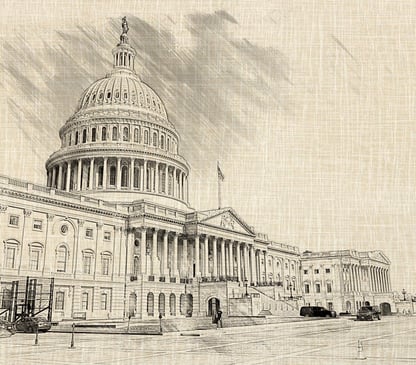Chaplaincy and Politics


(Originally Posted January 2020)
I realize this may step on some toes in the South, but please bear with me.
If two chaplains in the United States have the most challenging job, they would be the chaplains for the House of Representatives (Fr. Patrick J. Conroy, S.J.) and the U.S. Senate (Chaplain Barry C. Black). With all the rancor and division going on in today’s heated and politically charged atmosphere, these two are called to bring spiritual guidance and healing to people who don’t seem to like each other. Some say we should never talk about religion or politics, but these two chaplains are deep into both.
But we, as public safety chaplains, don’t work among politicians and those shaping the national political scene. We work in the firehouses and police stations and the field around the general public.
Does it matter how we talk about politics and politicians? I think it does. Like anyone else, chaplains have both a public and private life. I respect that. But especially when it comes to social media, we cannot always keep them apart. And we cannot easily put aside our public ministries when we want to speak as citizens. Many people look at you and me through a different lens. They see you as a chaplain—their chaplain.
As the President of the South Carolina Public Safety Chaplains Association, the only hard and fast rule I can give is to remind you of the SCPSCA canon of ethics, which closely mirrors the ICPC canon of ethics.
SCPSCA Canon of Ethics
#8 As a private citizen, a Full Member of the Association may lend his or her presence to any political or social movement, support a candidate for political office, or run for political or civic office. A Full Member will take great care not to use the SCPSCA name, logo, or likeness to endorse such actions. If running for political or civic office, mention of SCPSCA membership as part of a Full Member's resume is permitted as long as it is not intended to indicate endorsement of his or her candidacy by the Association.
Beyond that, I can’t tell you what to do. But here are some suggestions that may help you in the coming year. Think of them as guidelines rather than procedures, SOGs instead of SOPs.
1. Don’t talk about politics on social media (or at least tone it down).
Many people we minister to follow us on our social media streams. When we take a strong political stance on a candidate, we risk alienating people from the hope in us. Ask yourself, what is more important?
2. Don’t bring politics into the firehouse/police station.
What is your ministry about? As chaplains, we are invited into this work environment for a purpose. And I don’t think it’s to rant about the latest thing our politicians have done or not done, even if others are doing that. I try to leave the expression of my political views to my VERY close friends or my wife. And even at that, it’s tempered.
3. Leave them guessing about your politics, but be sure of your love and care.
Yes, we have our political perspectives. That is good. Please get out and vote. As citizens, we have the right to be involved in our political process, and many would say we have the responsibility. Hence, the statement about politics is in our canon of ethics. But when people see you and remember the nasty thing about a politician you said (or shared) on Facebook, instead of the care you gave them when they were feeling down, maybe we are not doing the job as chaplain right.
